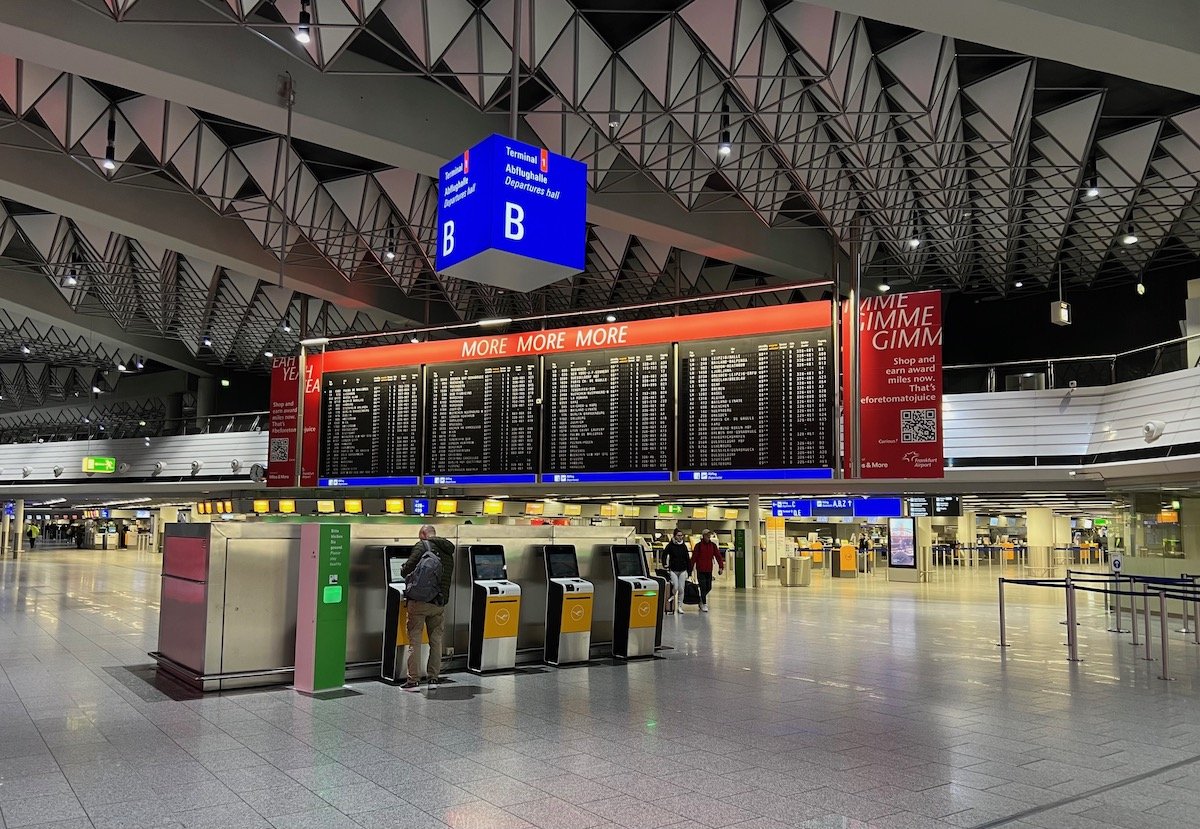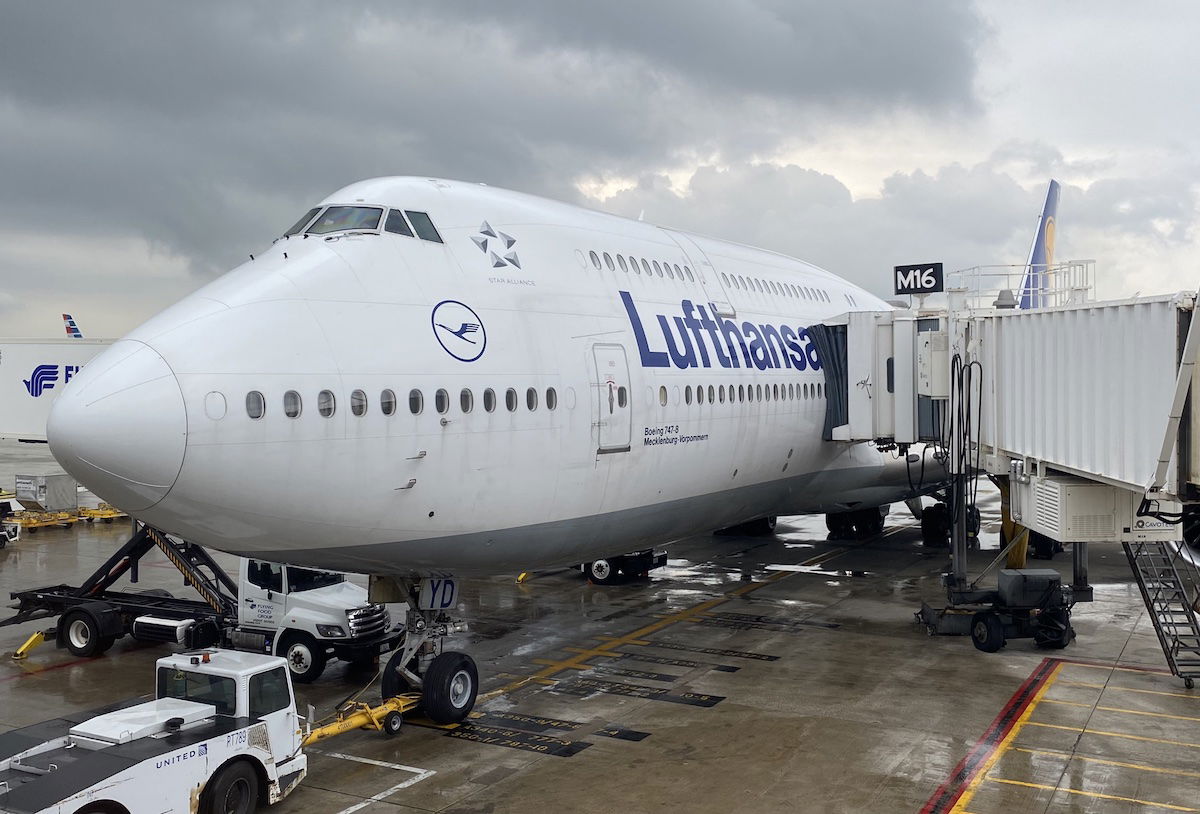Here’s some great news for both Lufthansa ground staff and passengers…
In this post:
Lufthansa & Verdi union agree on 24-month labor contract
Verdi is the trade union representing around 25,000 Lufthansa ground staff across Germany, including at Lufthansa, Lufthansa Technik, and Lufthansa Cargo. In recent weeks, ground staff have gone on strike on three different occasions, inconveniencing a countless number of passengers, and costing the airline hundreds of millions of dollars.
There’s a positive update, as Lufthansa management and the union have reached an agreement on a new contract, which will be in effect for at least 24 months. This is great news in terms of operational reliability, though keep in mind that flight attendants are still currently negotiating a new contract, so there’s a risk of strikes there.
This new labor contract was agreed upon as part of the arbitration process with Thuringia’s Minister President Bodo Ramelow, and the former head of the Federal Employment Agency, Frank-Jürgen Weise. Per the terms of the new contract:
- Ground staff will receive a one-time payment of €3,000 to offset inflation; €2,000 will be paid as soon as possible, while €1,000 will be paid by November 2024
- Ground staff will receive an average salary increase of 12.5%; there will be a retroactive pay increase of 7.5% going back to January 1, 2024, and as of March 1, 2025, there will be an increase in renumeration of €150 per month plus 2%
- There are several other improvements, including increases in ticket allowances, increase in holiday pay supplement, more flexible working hours, and more
Here’s how Lufthansa’s Chief Human Resources Officer, Michael Niggemann, describes the new contract:
“We are very pleased that we have come to a compromise together, and my express thanks also go to the two arbitrators. The past few weeks have demanded a great deal from both our guests and our colleagues. The agreement that has now been reached is therefore good news. Our employees will benefit from significant and sustainable pay rises – we know what our colleagues achieve every day, and it is important to us that salaries develop appropriately and well. At the same time, both our guests and our companies finally have planning security again in this regard. The agreement is of course a major economic challenge for us, to which we must now find answers. In any case, together we will focus all our energy on what makes us special: being a reliable partner for our customers and therefore an attractive employer with excellent perspectives for our employees.”

This seems like a big win for employees & the union
Admittedly I haven’t been privy to the exact details of the negotiations, though my understanding all along has been that the union has been requesting a wage increase of around 12.5%, plus a one-time payment of €3,000 to offset inflation.
Best I can tell, the union received… a wage increase of around 12.5%, plus a one-time payment of €3,000 to offset inflation. So as far as contract negotiations go, I’d say that’s a pretty huge win for the union.
Meanwhile this seems like a failure for management. Not only is the airline incurring hundreds of millions of dollars in losses from the strike, but it’s also paying significant (and deserved) wage increases.
Lufthansa Group CEO Carsten Spohr recently suggested that internally the airline allocates the cost of strikes to labor groups that go on strike. Perhaps in this case, the cost of the strike should be allocated to management, and the cost of it should be subtracted from their future bonuses? Because clearly the arbitration process ultimately determined that the requests were reasonable enough, hence the agreement.

Bottom line
Lufthansa and the union representing ground staff have come to an agreement on a new contract. Ground staff at the airline are getting a roughly 12.5% pay increase, plus a one-time payment of €3,000. This comes after ground staff went on strike three times.
If I’m understanding this correctly, it sounds like ground staff more or less got exactly what they wanted, while management got three strikes and higher labor costs.
What do you make of Lufthansa & Verdi agreeing on a new contract?





What are we hearing re: LH cabin crew negotiations? That seems like the last X factor in play here.
It's not the last one, even if LH CC are solved, OS CC and pilots are just getting started.
This, alongside with the success of DB unions, will be a major boost for cabin crew morale and willingness to stay strong. It's clear that Carsten is starting to understand that employees are not his slaves.
Another win for organized labor! Never forget that your employer does not care about you at all, and would gladly throw you to the wolves for a few extra pennies.
While it's true that many employers don't care about employees, the thug games that unions play make them far worse in my mind. It's organized blackmail. They stop working and try to inflict damage on the source of their income. These union thugs need to die a slow death for the pain they put their employers and customers through. If you don't like your job, get a new one. If you have no actual transferable skills, shut up and be grateful for the job.
It's amazing these dopey comments from the likes of John - I really hope you get screwed over by your employer big time as you seem to think that's all great.
Let's see now if they open up F redemptions to a few more days out. Will be interesting if this is why they moved them to 3-days.
“Lufthansa being a group, we introduced a few years ago that every internal strike is allocated as cost to the labor group which goes on strike, so that has a discipline element attached to it, which in my view makes people understand that internal strikes eventually come to their own disadvantage”
How'd that work out for ya', herr Spohr?
Judging by the departure board I saw at VIE this morning, not well. Which is good for everyone else.
The difference here was that Verdi wanted 500€ minimum wage increase instead of the actuall 280€, as well as a 12 months contract instead of 24 months.
I guess the duration was the main issue here for Lufthansa, since otherwise you could expect the same trouble again next year given the great relations between management and union.
US airline employees are seeing far bigger increases in compensation even as their employers work in a far more competitive environment than the LH Group.
yes, mgmt could have saved a whole lot of losses by agreeing to these raises earlier.
Tim, since I have you on the line . . . when does Delta expect to introduce A330s on transcon routes?
Everyone else, sorry for being off-topic.
Not sure what markets are you asking about but
the 339 and sometimes 333 and 332 regularly fly JFK-LAX although the 763 is the primary aircraft.
ATL-SEA and SLC (not really transcon) see a variety of widebodies.
ATL-LAX is mostly A359s and narrowbodies.
I know nothing other than what is in the schedules.
Thanks
The European market is extremely competitive and far more so than the US. Customers also protected by EC/UK261.
So called low cost carriers in the US are far more expensive than in Europe for similar distances. We have Ryanair, wizz and easy jet amongst numerous others. Ryanair carries more passengers than United and Southwest.
There’s almost no job security in the US. No mandated redundancy laws ,no sick pay, no maternity leave let...
The European market is extremely competitive and far more so than the US. Customers also protected by EC/UK261.
So called low cost carriers in the US are far more expensive than in Europe for similar distances. We have Ryanair, wizz and easy jet amongst numerous others. Ryanair carries more passengers than United and Southwest.
There’s almost no job security in the US. No mandated redundancy laws ,no sick pay, no maternity leave let alone paternity. It’s something unions fight for. And there’s also universal health care.
the European market is highly competitive but legacy carriers have less competition from low cost carriers in their hubs than in the US.
the tax burden in Europe is much higher.
and yes there is sick pay and parental leave in some jurisdictions and under some union contracts or some direct (non-union) companies.
I think 75% is a typo.
@ hbilbao -- That should have said, 7.5%, sorry! Fixed now.